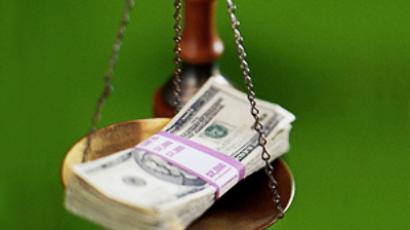Revised budget the key to Russian economy in global downturn
On Monday, Vladimir Putin will report to the State Duma on implementation of the government’s anti-crisis plan and announce amendments to the new budget. Experts say the new spending plan looks more realistic.
Planning against the crisis. Russia’s White House and the Parliament in a joint search for solutions. Vladimir Putin will address the State Duma with an anti-crisis plan and amendments to the budget.
Economic forecasts are gloomy – stubborn inflation and the economy stagnating by at least 7% – the worst of any G20 country. Vladimir Tikhomirov, Chief Economist at Uralsib, still sees risks for the Russian economy in the global outlook.
“If we are going to see a new wave of contraction in the global economy, falls in commodity prices, and as a result a new wave of capital outflow from Russia, that would put additional pressure on the Rouble rate and then we could see a weaker Rouble, and then a reappearance of the same inflation driver which is the devaluation driver.”
As a result of low commodity prices, higher spending and falling revenues the budget is facing a record 8% deficit – something Russia hasn’t seen since the 1990s. Sergey Aleksashenko, Head of Macroeconomic Research at the High School of Economics says the budget can help.
“The government has realized several significant changes in the budget, first of all they have cut a big amount of expenditure – capital expenditure and current expenditure and increased significantly expenditure for social security and assistance to the banking sector.”
Aleksashenko says, however, that there’s something else the government should understand. The trouble is not only falling oil prices.
“For example Saudi Arabia has no decline at all. It means there’s something wrong with our economic system and the government should recognise this and implement structural reforms.”
He says the country desperately needs new incentives to encourage not only big business but also small firms who get barely any attention from the government.













